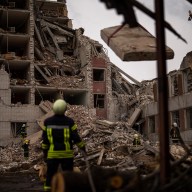After the recent bout of public scrutiny over accusations by former senior Canadian diplomat Richard Colvin about Ottawa’s indifference toward the torture of detainees in Afghanistan, we need to recall that, in 2005, former prime minister Paul Martin gave the thumbs up to then-defence minister Bill Graham to negotiate a detainee transfer agreement with the Afghanistan government.
At the root of this ongoing dilemma of how to process these detainees is our high regard for human rights: The golden element that keeps a robust flock of immigrants and refugees coming our way. Human rights is the cornerstone of our democracy. For this reason, we hold our authorities to a higher moral standard, having delegated ourselves the responsibility of being international role models, but we need to do so with understanding.
For instance, most of us can not fathom the routine atrocities committed by many foreign regimes such as the Taliban, such as: Shooting eight boys to death because they laughed at Taliban fighters, mutilations, beatings, gang rapes and the torture of women and children; burning entire families alive. More frightening is that these atrocities represent the vision these barbaric insurgents hope to export to other parts of the world, with their deep-seated hatred and opposition to Western values.
Based on these facts, we need to appreciate that justice would be better served if groups like Amnesty International would up the ante in renouncing the heinous deeds of an enemy that has gone so far as to hide among civilians and disguise its members as emergency and media personnel.
These unlawful combatants are not protected by the Geneva Conventions, even though there are those who argue they should be. And they most certainly do not fall under our Charter of Rights of Freedoms. However, Justice Anne McTavish did rule that Afghan detainees do have rights under their own constitution and international law.
Given the prior floods of accusations about the Western lack of respect for the sovereignty of foreign governments, how do we justify bypassing Afghanistan’s own rules of engagement, albeit primitive? According to Brig.-Gen. Daniel Menard, progress is happening as Afghan authorities are being receptive to Canada’s advice on how to treat detainees.
We need to exercise patience and support of ongoing efforts to work out a moral solution concerning these detainees.















